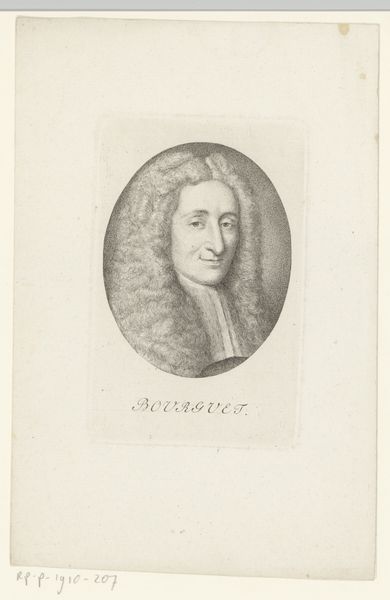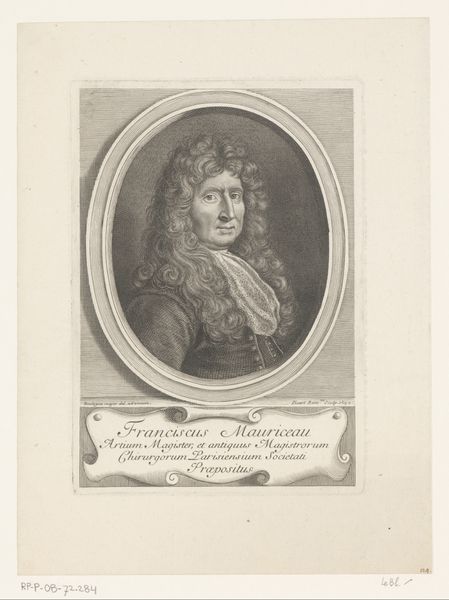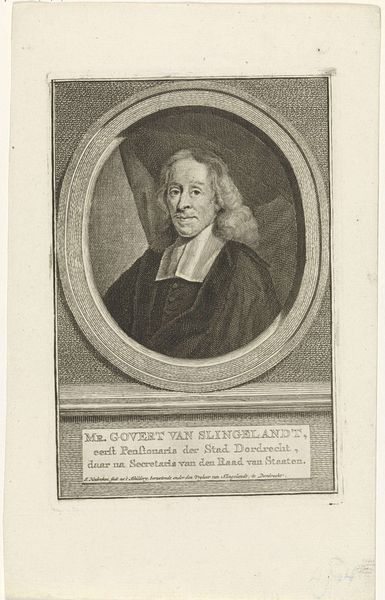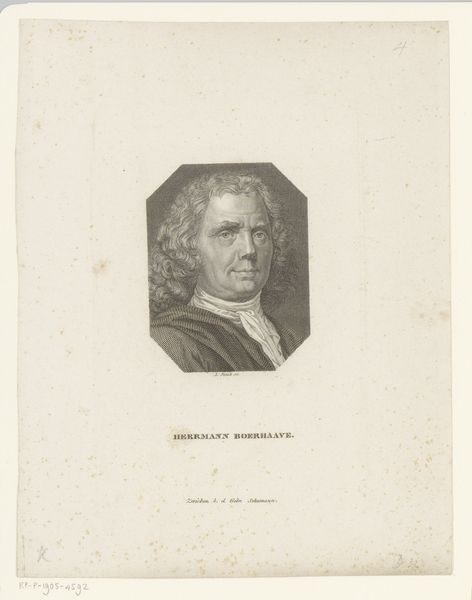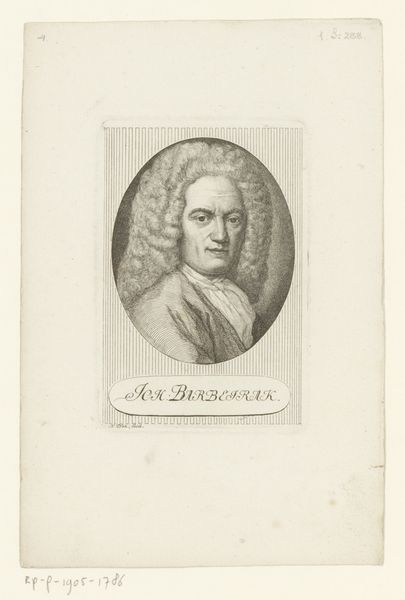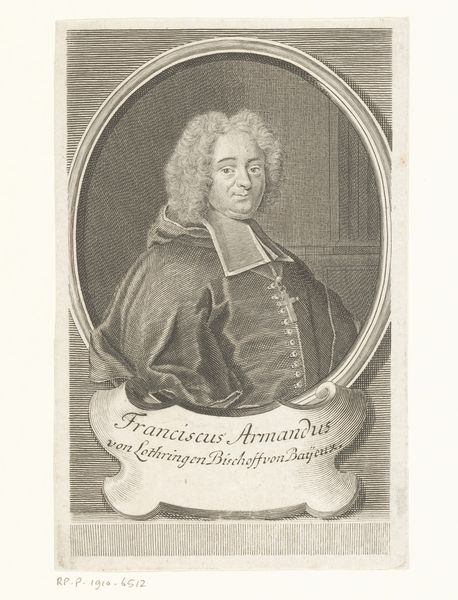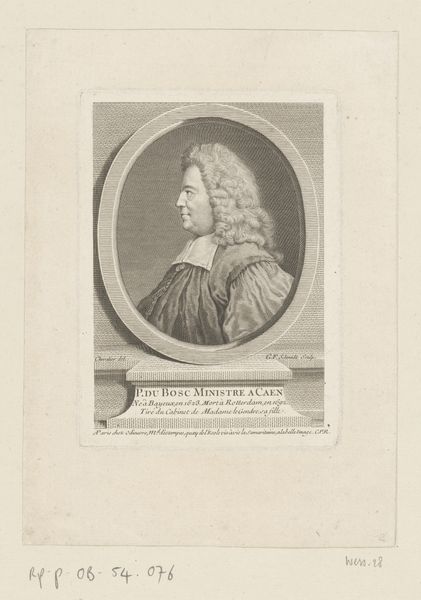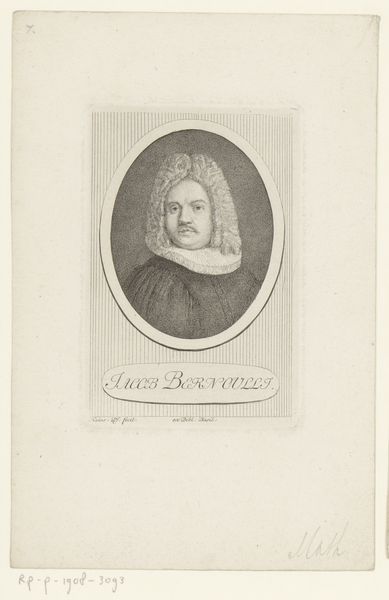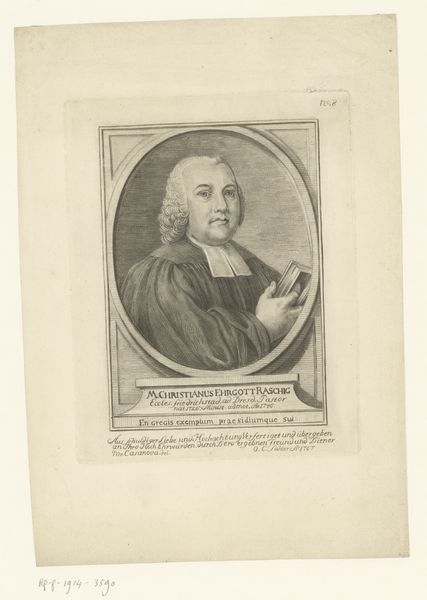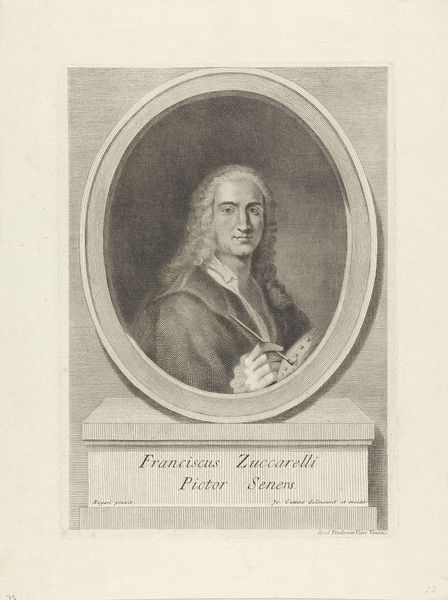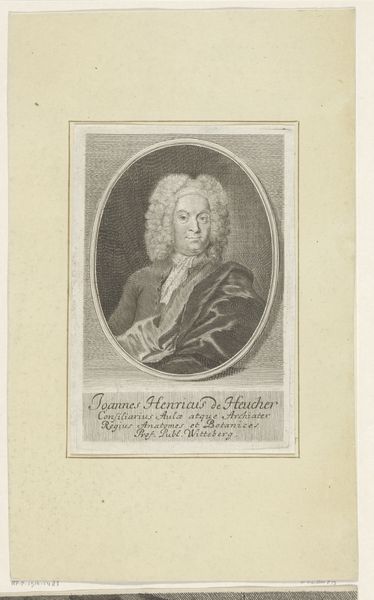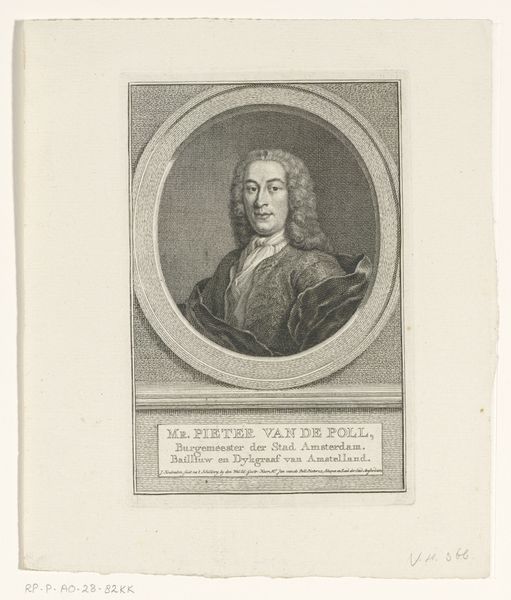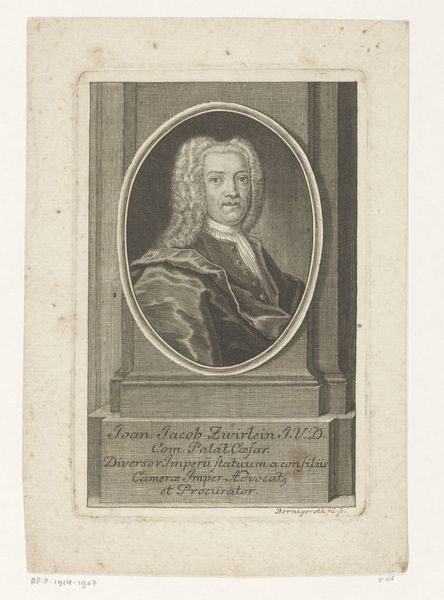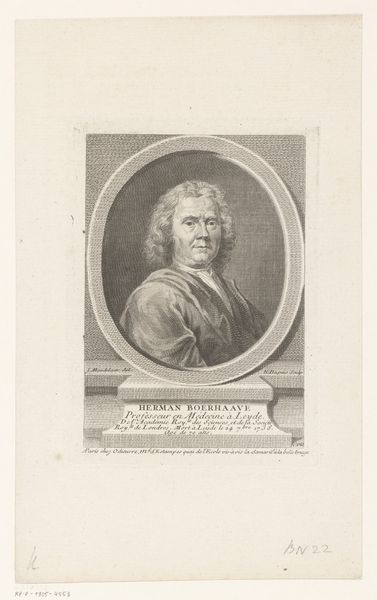
Dimensions: height 152 mm, width 104 mm
Copyright: Rijks Museum: Open Domain
Nicolas Schencker made this small portrait of Guillaume de Brisacier using etching and engraving. In eighteenth-century France, portraiture was more than just a way to record appearances; it was a tool for constructing and reinforcing social hierarchies. Brisacier's attire speaks volumes about his status. The elaborate lace collar and meticulously styled wig were markers of wealth and belonging to the elite. These were visual codes that reinforced the social order, communicating power and respectability to those who viewed the image. This portrait can be situated within the institutional context of the French court and aristocracy, where images like this were part of a system of patronage and power. To understand this artwork better, we can look into the history of fashion, portraiture, and the social structures of the French elite. By exploring these resources, we can gain insights into how art was used to uphold or challenge the social norms of its time.
Comments
No comments
Be the first to comment and join the conversation on the ultimate creative platform.
